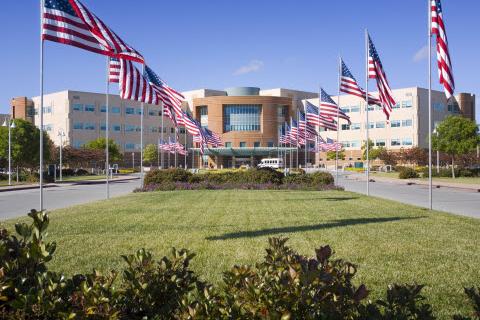
Department of Veterans Affairs and Stanford University officials on June 30 announced plans to potentially plan, build and operate a National Cancer Institute-designated joint cancer care and research center on the VA Palo Alto, California campus.
“This center will provide our entire community, both veterans and non-veterans, access to cancer care that’s informed by the best possible science and research,” said President and CEO of Stanford Health Care David Entwistle.
President Joe Biden’s signing of the PACT Act on Aug. 10, 2022, which makes veterans of all eras who were exposed to toxins as a result of their service eligible for VA health care and benefits, set the stage for the collaboration.
“This will allow us to partner with every powerhouse academic center in the country, if we do this right,” said VA Under Secretary of Health Dr. Shereef Elnahal.
Elnahal added that VA has consistently learned best practices from the collaboration between the VA Palo Alto Health Care System and Stanford Medicine.
“This is an announcement that solidifies that extraordinary relationship,” Elnahal said.
According to the VA, more than 50,000 cancer cases are reported to its Central Cancer Registry each year and research has shown that certain experiences during military service may put veterans at increased risk for cancer.
"Each of us has either been affected by cancer or we have a relative, friend, a loved one who's experienced cancer," said Dean of Stanford Medicine Dr. Lloyd B. Minor.
More than 1,000 trainees from Stanford rotate and see patients on the VA’s Palo Alto campus.
"It's just logical that we wanted to provide state-of-the-art cancer care to our veterans," said VA Palo Alto Chief of Staff Dr. Michael Kozal.
Much about the project remains to be ironed out between VA and Stanford officials, including construction details and timing, cost and how the facility will be staffed. However, Elnahal said he is hopeful that the new center will be online in five years.
“My message to veterans is this: know that we are doing this in service of making medical care even better and more accessible to you over time,” he said.
Reach Julia LeDoux at Julia@connectingvets.com.


